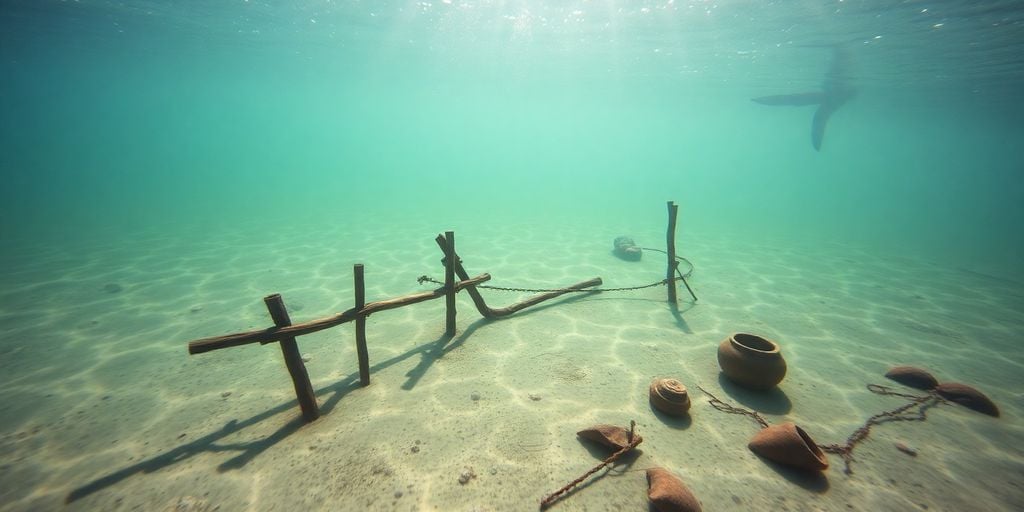Archaeologists have made a groundbreaking discovery in Albania, uncovering what is believed to be Europe’s oldest lake settlement. Dating back up to 8,000 years, this ancient community on the shores of Lake Ohrid offers unprecedented insights into early European life, revealing sophisticated hunting and farming practices of its inhabitants.
A Glimpse Into the Past
An international team of Swiss and Albanian archaeologists has been meticulously working underwater at depths of approximately three meters in Lake Ohrid, near the village of Lin. Their efforts have yielded a treasure trove of artifacts, painting a vivid picture of a highly organized prehistoric society.
Key Discoveries and Dating Methods
The excavation has brought to light numerous significant findings:
- Wooden Stilts: Over a thousand wooden stilts, used to support the ancient houses, have been retrieved. These provide crucial evidence of the settlement’s construction.
- Animal Remains: Bones of both wild and domesticated animals offer clues about their diet and the early adoption of animal husbandry.
- Copper Objects and Ceramics: The presence of copper artifacts and intricately carved ceramics indicates a level of craftsmanship and potentially trade networks.
The age of these findings is rigorously determined through two primary scientific methods:
- Radiocarbon Dating: This technique analyzes the decay of carbon-14 isotopes in organic materials to ascertain their age.
- Dendrochronology: By examining the annual growth rings in the recovered wooden samples, researchers can precisely date the timber.
Unprecedented Age and Significance
Albert Hafner from the University of Bern highlights the extraordinary age of this settlement. While similar lakeside communities have been found in the Alpine and Mediterranean regions, the Lin settlement predates them by as much as 500 years, placing its origins between 6,000 and 8,000 years ago. This makes it the oldest known pile-dwelling settlement in Europe.
Key Takeaways
- The underwater preservation of organic materials provides unique insights into the diet and agricultural practices of these ancient people.
- The inhabitants of this settlement were instrumental in the spread of agriculture and livestock farming across Europe.
- Despite their reliance on farming, they also continued hunting and gathering, demonstrating a diverse subsistence strategy.
- Lake Ohrid, shared by Albania and North Macedonia, is itself a geological marvel, being over a million years old and the oldest lake in Europe.
Future of the Excavation
The site is estimated to cover an area of approximately six hectares. However, after six years of dedicated work, only about one percent of the settlement has been excavated. Albanian archaeologist Adrian Anastasi suggests that fully exploring this extensive site could take several decades, promising many more revelations about this remarkable ancient civilization.






